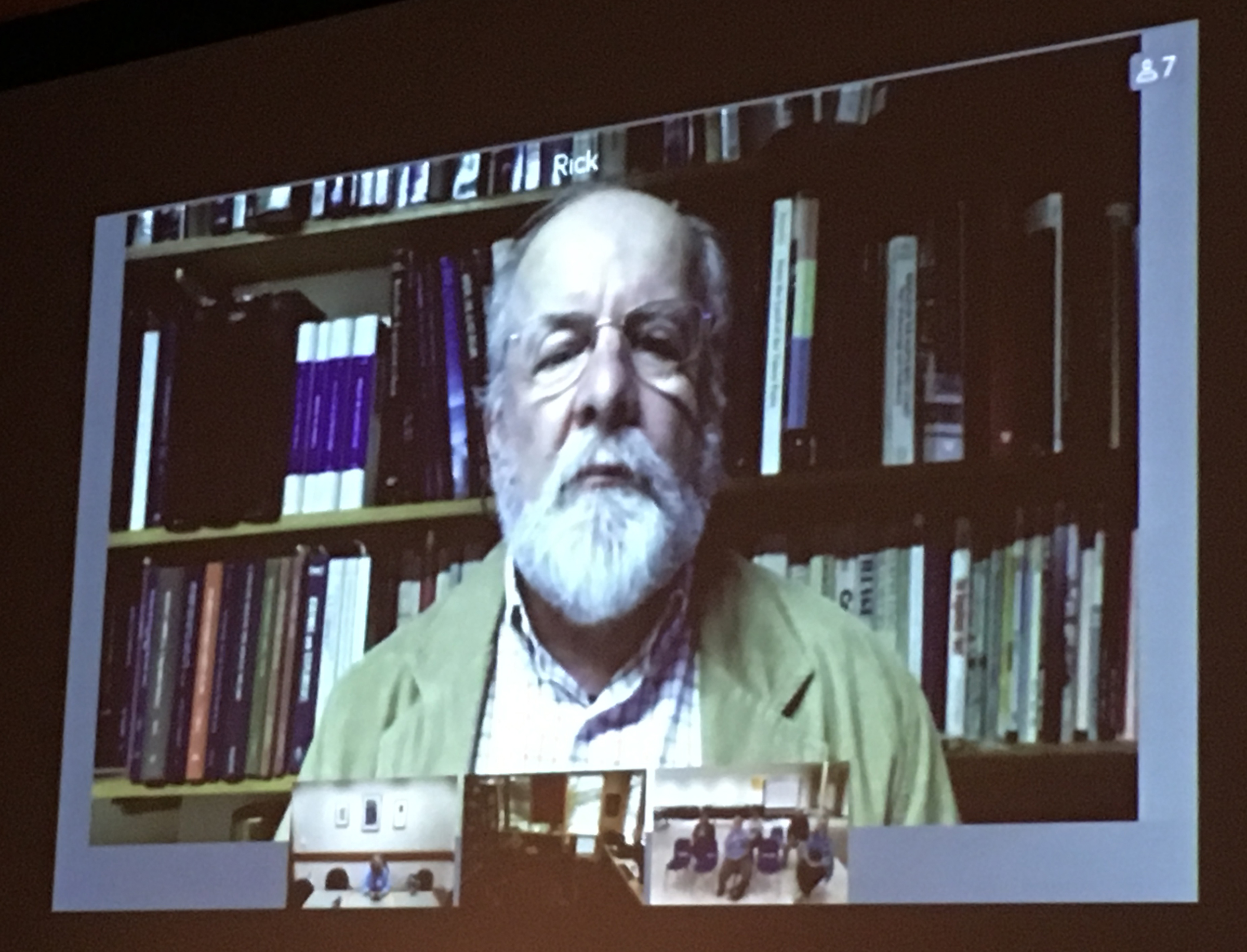William Shakespeare never visited Alaska, but the Arctic did come to him.
On Wednesday, professor Rick Knecht of the University of Aberdeen in Scotland held a teleconferenced lecture at the Alaska State Library, Archives and Museum to explain what was happening in Alaska at the time the English language’s most famous author was living and working.
Knecht’s lecture was part of the state library’s exhibit on Shakespeare’s First Folio, which is on display in the library through Aug. 24.
[394-year-old Shakespeare volume goes on display in Juneau]
“During Shakespeare’s time, people were familiar not just with North America, but with the North,” Knecht said.
Knecht’s lecture was broadcast statewide on the Online With Libraries network; 14 people attended in person at the Juneau museum and sat in a dark hall next to the First Folio’s glass case.
[All Juneau’s a stage at Shakespeare First Folio exhibit]
Martin Frobisher’s three expeditions in search of the Northwest Passage took place in the 1570s, when Shakespeare was a young man. Frobisher’s voyages, which took him to Baffin Island and points in what is now northern Canada, represented the first significant contact between the Canadian Inuit and the English-speaking world. Two Native Canadians even traveled back to England as hostages under Frobisher’s care, but they soon died of disease.
After setting the scene, Knecht offered the latest developments from his archaeological excavations at the Nunalleq site in Southwest Alaska. Close to the modern town of Quinhagak in the Yukon-Kuskokwim Delta, Nunalleq was a bustling community when Shakespeare lived.
Burned about 1670 during a particularly brutal attack, the village has become an extraordinarily valuable source of information regarding coastal life in the Delta.
“All the wood and organic stuff that we normally lose has been preserved by the (permafrost) ice until now,” Knecht said.
Since 2009, Knecht has led digs at the site that have uncovered more than 47,000 artifacts — from ulu knives to masks and never-before-seen woven grass mats and dog harnesses. The permafrost of the site has even preserved things as fragile as human and canine hair.
“The preservation is so good that the wood, freshly thawed out of the ice, is still bright,” he said.
Grass objects sometimes are still green when they’re removed from the site, “and you can watch it turn brown as the air hits it.”
“The site’s thawing out really quickly, but it’s left behind this incredible archaeological record that we rarely see,” he said.
The site has helped explain how Delta residents lived on caribou, sea mammals and fish. It’s provided insights into their lives and lifestyles.
While Shakespeare was able to record his words in print, written history didn’t come to Alaska until Europeans did. That makes archaeology critical to understand Alaska’s prehistory.
Knecht’s team isn’t excavating the site this summer — they hope to be back in 2017 — but the work is running against a deadline, he explained.
While Shakespeare’s words have been preserved, Nunalleq is threatened by climate change. The permafrost that preserved the site is rapidly thawing, and beach erosion has already claimed the sites that were excavated in 2009, when the project started.
“I wish we’d started much earlier,” Knecht said.
• Contact reporter James Brooks at 523-2263 or james.k.brooks@juneauempire.com. Follow him on Twitter at @AK_OK.
Read more news:
Down in the dumps: Airport closes lavatory dumpsite after surprise FDA inspection
Juneau on track to see the most burglaries in a decade
One of Juneau’s oldest bars is getting a new name and new look

